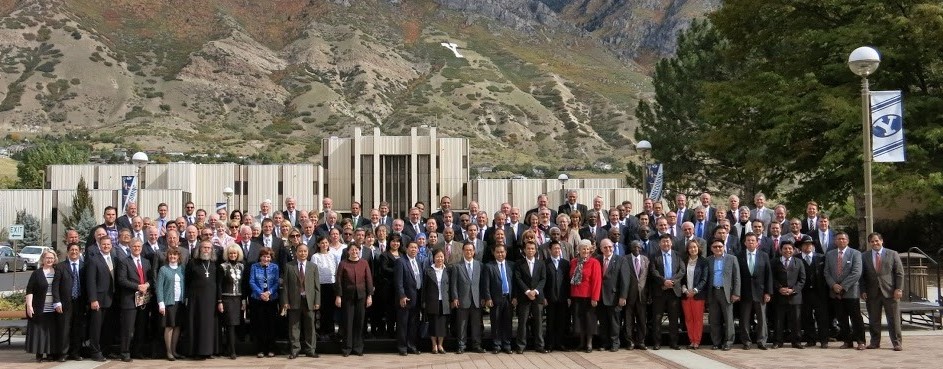20th Annual International Law and Religion Symposium
The Twentieth Annual International Law and Religion Symposium
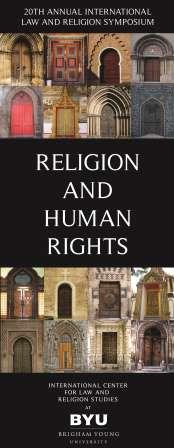
The 20th Annual International Law and Religion Symposium has concluded in Provo, Utah. Symposium participants engaged in discussion of this year’s theme, “Religion and Human Rights“, addressing such conference sub-themes as “Religious and Philosophical Foundations of Human Rights”, “Tensions and Synergies Between Religious and Other Human Rights”, and “Judicial Perspectives on Religion and Human Rights.”
- More than 80 distinguished delegates from 42 countries brought the total number of delegates to have come in the 20 years of this Annual Symposium to more than 1000, from more than 120 countries.
- Keynote speakers at the opening session were Françoise Tulkens, ad hoc judge and former Vice President of the European Court of Human Rights, and Malcolm Evans, OBE, Professor of Public International Law at the University of Bristol Law School and Chair of the United Nations Sub Committee for the Prevention of Torture.
- Professor Evans also received the 2013 Distinguished Service Award.
- Many of the conference sessions have been heard worldwide in seven languages (English, French, Portuguese, Russian, Spanish, Turkish, and Ukrainian) via live webcast.
- All sessions of the conference have been recorded for later access. Links to recordings will appear on
…
Twentieth Annual International Law and Religion Symposium, 6-8 October 2013
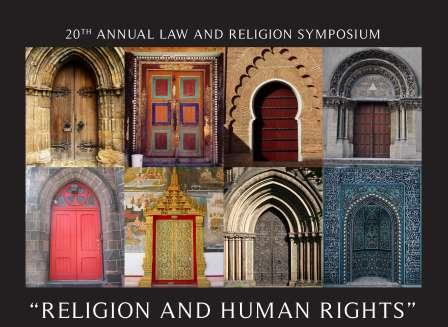
More than 80 distinguished delegates from more than 40 countries met, along with approximately 200 guests and students at the Twentieth Annual International Law and Religion Symposium of the International Center for Law and Religion Studies, held October 6-9, 2013 at the J. Reuben Clark Law School on the campus of Brigham Young University in Provo, Utah. Delegates
The theme of this year’s conference – “Religion and Human Rights” – was chosen for its timeliness and urgency, and also in acknowledgment of the 1700th anniversary of the proclamation of the Edict of Milan, the 313 A.D. agreement between the Roman Emperors of the East and the West…
Symposium 2013: Distinguished Service Award to Malcolm Evans
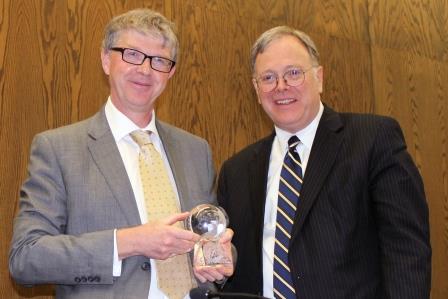
Professor Malcolm Evans OBE received the International Center for Law and Religion Studies Distinguished Service Award for 2013. In presenting the award at the opening session of the 20th Annual international Law and Religion Symposium, Center Director W. Cole Durham, Jr. made the following remarks:
It is with particular pleasure that I introduce Malcolm Evans, a longtime friend and colleague, and this year’s recipient of the International Center for Law and Religion Studies Distinguished Service Award. I first met Malcolm more years ago than either of us would like to admit when he was in charge of the quadrennial Congress of the International Association of Comparative Law, which was held in 1998 at his university in Bristol In the years since, Professor Evans has established himself as one of the leading figures in the field of International Human Rights Law. At Bristol, he has served as Dean of the Law Faculty and subsequently as what I call a super-dean, as the Dean of the Faculty of Social Sciences and Law. He is also Chair of the Board of Governors at Regent’s Park College Oxford—a Baptist College at Oxford.
In the international human rights setting, Malcolm currently chairs the United Nations Subcommittee on Prevention of Torture. This is some what misnamed because it is really an independent treaty body responsible for administering the Optional Protocol to the Convention against Torture and Other Cruel, Inhuman or Degrading Treatment or Punishment as it applies to its 75 Signatories and 69 parties. It is now the largest treaty body in the overall United Nations Human Rights System, with 25 members. It is also unique in that it has authority to visit places of detention in any of the 154 Parties to the Convention Against Torture, and significantly, does not need to wait for invitations to make visits. It also has the authority to work with state parties to set up national inspection systems. To the extent its mandate covers not only torture, but also other cruel, inhuman or degrading treatment, it also attends to religious situations in prisons, including such matters as access to clergy, dietary requirements and the like.
Professor Evans established himself as a leader in the law and religion field with the publication of his book, Religious Liberty and International Law in Europe, published in 1997. This rapidly emerged as the leading authority on religion issues in Europe and beyond. I will not take time to read off the many other influential international law texts and articles he has authored.
I had the opportunity to work with him for a decade on the Advisory Council on Freedom of Religion or Belief of the Organization for Security and Cooperation in Europe, where he was always one of the most energetic, efficient, and effective Council members, working on laws in numerous countries throughout the OSCE region, which stretches from Vancouver to Vladivostok, moving east. I was also able to work closely with Malcolm in founding the Oxford Journal of Law and Religion. In addition to serving as a Co-Editor-in-Chief of that journal, Malcolm is now the General Editor of the International and Comparative Law Quarterly. I can only say, I have trouble keeping up with the responsibility for editing one of these journals; Malcolm manages to handle two, on top of everything else he is doing.
Let me mention just a few of the additional activities in which Malcolm is engaged. He has served as a key adviser to the All Party Parliamentary Group on International Religious Freedom that has been organized in the Parliament of the United Kingdom. He oversaw the creation of its first report issued earlier this year: “Article 18: An Orphaned Right”. He is also a member of the United Kingdom Foreign Secretary’s Human Rights Advisory Group, where he has contributed very active support for freedom of religion or belief. He has helped coordinate bilateral efforts of the United Kingdom, the United States, and the European Union with respect to initiatives promoting freedom of religion or belief.
Any award we can give tonight pales in significance compared to recognition to being designated as an officer of the Order of the British Empire—recognition that is just a step below Knighthood in the British system. He described the ceremony of being given that honor, personally by the Queen of England. We cannot match that ceremony. Nonetheless, we take great pride in conferring our Distinguished Service Award this year on a longtime friend, outstanding scholar, and remarkable human rights worker, Professor Malcolm Evans.
Symposium 2013: The Hosts & Visiting Research Advisors
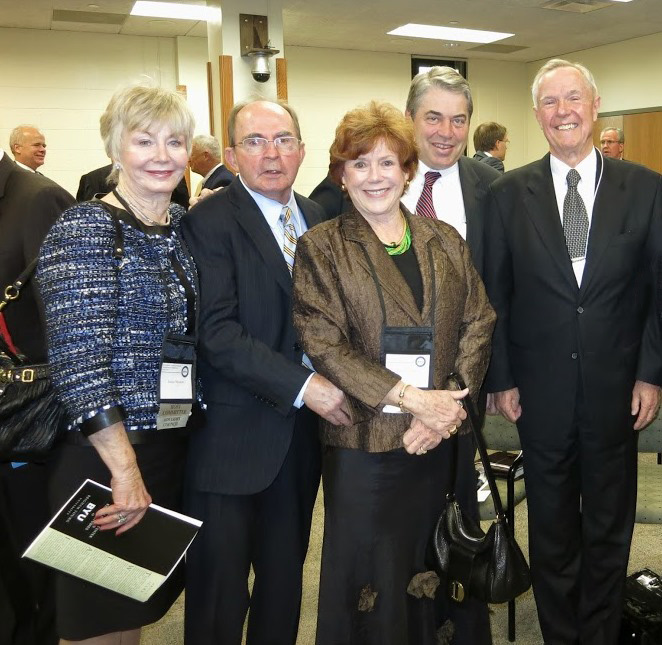
The International Center for Law and Religion Studies is grateful once again this year for the indispensable help of our friends who have volunteered to assist in hosting delegates to the annual International Law and Religion Symposium. The Hosting Committee is chaired by Linda Nearon and Lynn Anderson, assisted by members of the Center’s International Advisory Council. A number of the hosts have served with us for some time, and we express our continual gratitude to these capable and generous people for making the Symposium such a memorable experience for all who attend, year after year. We enthusiastically welcome those who have more recently joined us as hosts, and we look forward to a long and fruitful association. In addition, we are particularly grateful this year for the contributions of volunteer Research Advisors, under the direction of Gayla Sorenson, whose contributions included excellent reports of Symposium Sessions.
A Quiet Voice in a World of Trouble, Cole Durham Works for Religious Liberty
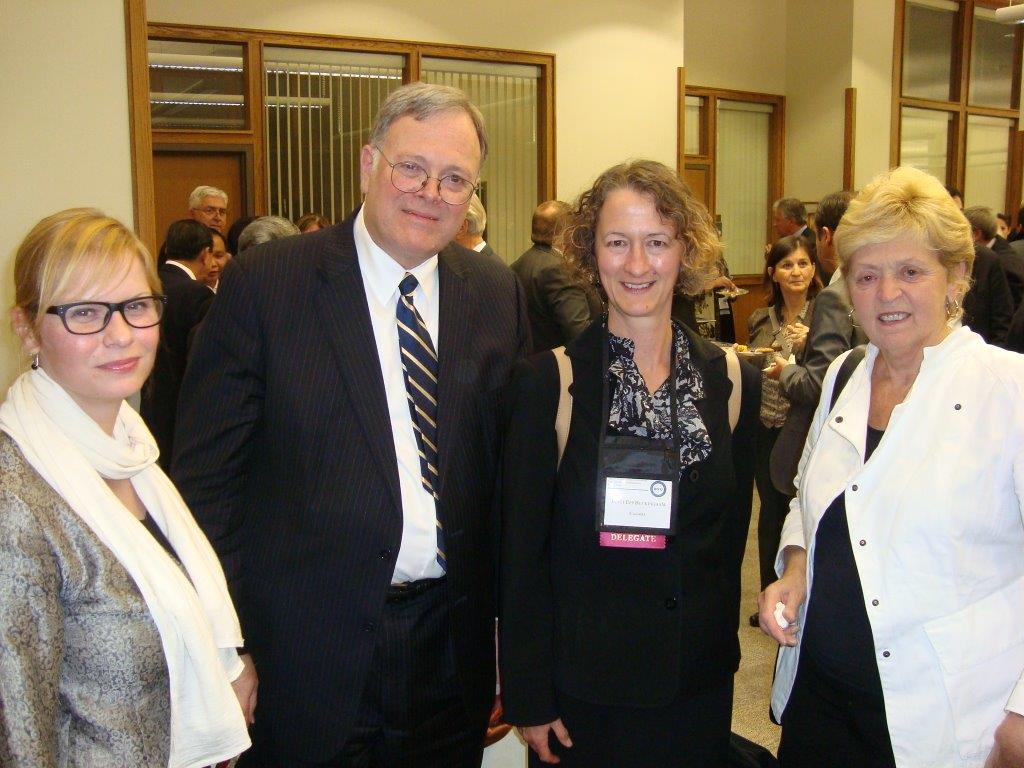
Eric Schulzke, Deseret News – 9 January 2014
In a crowded, wood-paneled mock courtroom at a recent conference on religious liberty in Provo, delegates from 40 countries listened intently through their headphones as translators scrambled to integrate 15 languages, ranging from Macedonian to Vietnamese.
At the podium, a South African judge told how he twice overruled parental religious objections, forcing them to allow their child a blood transfusion. “I think in both cases the parents were eventually happy that their children survived,” he said.
A Malaysian lawyer later stood to condemn any religious influence in public life. “Human rights is the enemy of all religions,” he said, his perspective bent under the weight of a heavy-handed Muslim majority at home. “Human rights stem from…
Symposium 2013: Recordings and Photos Now Available
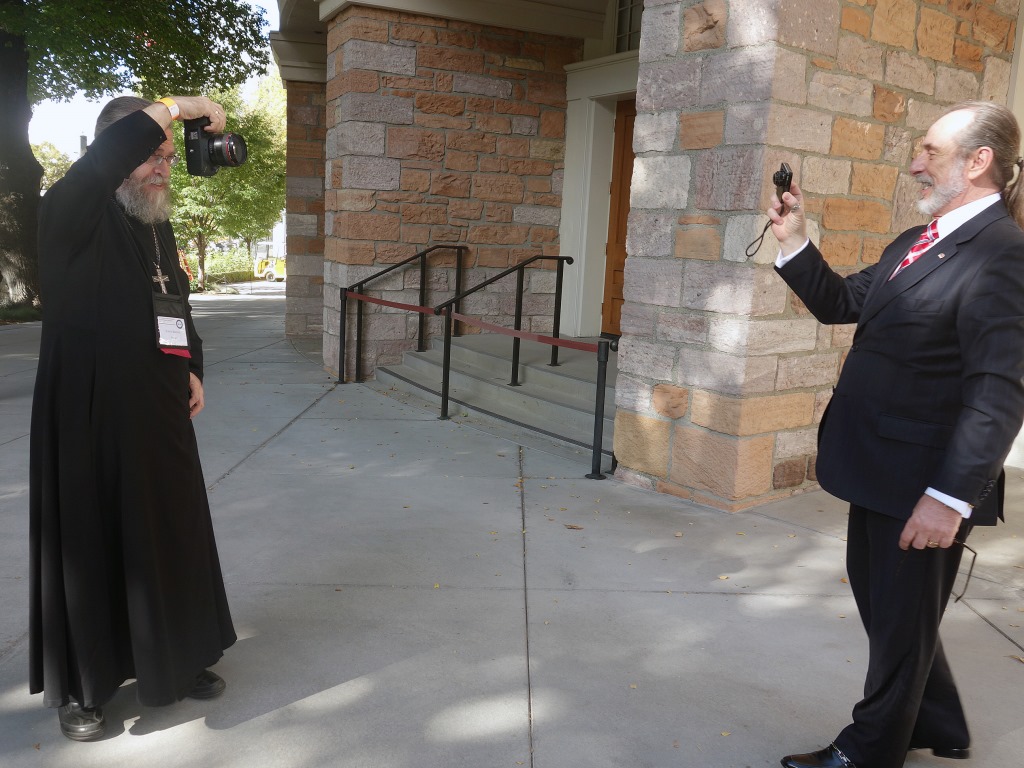
Recordings (audio and, where available, video) for many sessions of Symposium 2013 are now available here. Please note that many presentations are available in numerous languages. To find the dropdown list, please click the arrow to the right of ‘English’ on the far right of the 2013 Annual Symposium line.
Photos from the 20th Annual International Law and Religion Symposium held in Provo, Utah, October 6-8, 2013 are now posted on the Symposium 2013 web page. (Please scroll down the page to see the various albums available.)
The collection by Matt Imbler (official BYU Law School Photographer) is now available, as well as photos by other photographersm which are available in separate albums, identified by the photographer’s name. So far we have albums by David Christensen, Page Johnson, Linda Nearon, and Yakov (James) Krotov…
Symposium 2013 Keynote Speaker: Françoise Tulkens
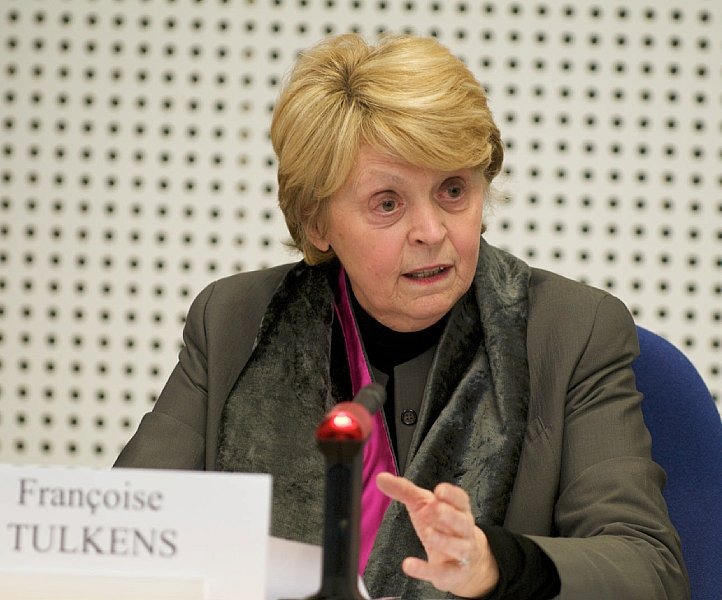
Delegates, invited guests, and listeners worldwide via live webcast of the opening session of the 20th Annual International Law and Religion Symposium were privileged to hear an excellent and stimulating keynote address by Judge Françoise Tulkens, who spoke to the topic Religion and Human Rights from her perspective as a member of the European Court of Human Rights.
Judge Tulkens was a member of the Court in respect of Belgium from 1998 until her retirement in 2012. She served as Section President from 2007, and from February 2011 she was one of two Court…
Symposium 2013 Keynote Speaker: Malcolm Evans
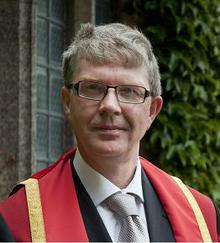
The International Center for Law and Religion Studies is honored to announce that Malcolm Evans, OBE, will be a keynote speaker at the 20th Annual International Law and Religion Symposium, “Religion and Human Rights,” to be held 6-8 October 2013 at Brigham Young University. Professor Evans will also receive the Center’s 2013 Disinguished Service Award for his many contributions to the promotion of freedom of religion or belief and the protection of human rights worldwide.
Malcolm Evans is Professor of Public International Law at the University of Bristol Law School and Chair of the United Nations Sub Committee for the Prevention of Torture. He is a member…
Symposium 2013: Student Executive Committee
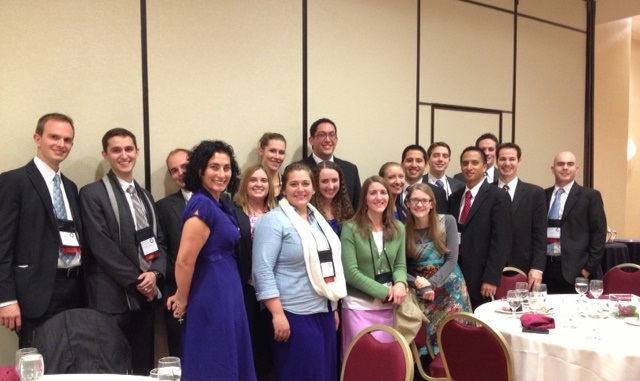
The International Center for Law and Religion Studies at Brigham Young University expresses its deep gratitude to the members of the Student Executive Committee for 20th Annual International Law and Religion Symposium, held at the Law School in during October 6-8, 2013. The success of the Symposium each year is due in large part to the planning and performance of outstanding students from the J. Reuben Clark Law School, who not only volunteer their own time before and during the Symposium as members of this committee, but also recruit and supervise a large number of other students from…
The Edict of Milan – 313 AD – the “birth certificate for religious freedom”
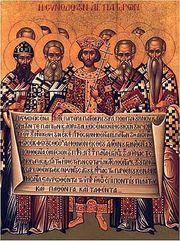
The theme of the 20th Annual International Law and Religion Symposium – “Religion and Human Rights” – was chosen for its timeliness and urgency, and also in acknowlegment of the 1700th anniversary of the proclamation of the Edict of Milan, the 313 AD agreement between Roman Emperors of East and West that effectively granted religious freedom throughout the Roman Empire, marking what lawyer, politician, and professor Gabrio Lombardi has termed the Initium Libertatis, in effect the “birth certificate for religious freedom.”
In a certain sense, said Cardinal Angelo Scola, Archbishop of Milan, writing in December 2012, “the very first emergence in history of the two phenomena that today we call ‘religious freedom’ and ‘the secular state’ … two crucial elements of a good organisation of political society” may be traced back to this event….
Annual Symposium 2013: “Religion and Human Rights”

BYU Law Review Volume 2014, No. 3
More than 80 distinguished delegates from 42 countries met in the 20th Annual International Law and Religion Symposium to engage in discussion of “Religion and Human Rights.” Some papers from this Symposium, and other related papers, were published in the BYU Law Review…
